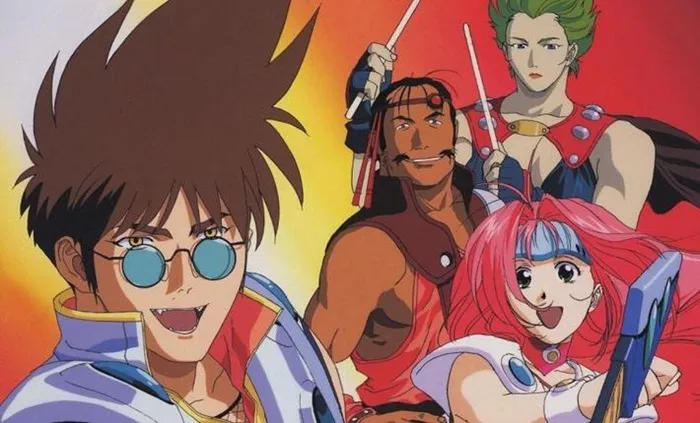The Macross franchise is one of the most iconic names in mecha anime, standing alongside heavyweights like Mobile Suit Gundam and Neon Genesis Evangelion. While its releases have been scattered over the years, the 1990s were a defining era for the franchise. As 2024 marks the 30th anniversary of Macross 7, a divisive yet vital series in the Macross legacy, it’s worth examining why this controversial entry holds such importance.
The Role of Music in the Macross Universe
Since its inception with Super Dimension Fortress Macross, the Macross franchise has stood out for its unique blend of mecha action and musical themes. Music and pop culture have been central elements, often embodied by female characters who are pop idols. Their songs aren’t just background music; they are sometimes crucial to the storyline, used to defeat enemies or bring harmony between warring factions.
This relationship between music and conflict resolution became more pronounced in Macross 7, pushing the theme further than any previous installment. However, while this thematic extension helped distinguish the series, it also alienated many fans, particularly in Western audiences.
The Music in Macross 7: A Double-Edged Sword
Set 35 years after the original series, Macross 7 depicts a time when humanity and the alien Zentradi live in peace. A new enemy, the Protodevlin, threatens this harmony, and the band Fire Bomber becomes central to the fight. The series features musical performances during battles, making it a mecha-musical hybrid. While the original Macross used music in measured doses, Macross 7 turned it into a recurring focal point, with each conflict culminating in a song that resolved the tension.
For some viewers, this constant reliance on music felt repetitive and detracted from the mecha battles. The lack of traditional orchestral scores, replaced by recurring pop and rock tracks, only added to this perception. As a result, Macross 7 became known for its overuse of musical elements, which many fans felt diminished the tension and variety in the storytelling.
A Divisive Lead and Repetitive Storylines
The issues with Macross 7 extended beyond its musical focus. The protagonist, Basara Nekki, was a major point of contention. His character, while essential to the show’s musical motifs, was viewed by many as unlikable. Fans grew weary of his repetitive behavior, as Basara’s singing became the solution to almost every plot point.
This repetition extended to the overall narrative. With nearly 50 episodes, much of the series felt like filler, as the same themes and scenarios played out again and again. The lighter tone of the show also clashed with the more serious and action-driven approach of previous Macross installments, leading some fans to feel that the series bordered on parody.
Fire Bomber: The Lifeline of Macross 7
Despite its mixed reception, Macross 7 introduced one of the franchise’s most enduring marketing elements: the fictional band Fire Bomber. The characters of the band performed songs voiced by actual musicians, adding a layer of authenticity to the music that resonated with fans. Though the musical elements were overused, Fire Bomber’s tracks gained a cult following in Japan.
Fire Bomber’s legacy continued beyond Macross 7. The band made appearances in later Macross series and movies, such as Macross Frontier and Macross FB 7, which revisited the band’s storylines. In 2025, Fire Bomber will reunite for their first live concert in years, further proving their lasting appeal.
A Controversial but Crucial Chapter in Macross History
In hindsight, Macross 7 is both one of the most contentious and pivotal entries in the franchise. While its repetitive musical themes and character issues frustrated many viewers, the series also introduced innovations that have kept the Macross brand alive. Fire Bomber, once a divisive element, became a cornerstone of the franchise’s identity, helping to sustain its popularity even during times when new Macross content was scarce.
For all its flaws, Macross 7 helped pave the way for future entries in the franchise, ensuring that Macross continued to evolve and stay relevant amid fierce competition from franchises like Gundam. As the 30th anniversary approaches, it’s clear that this controversial chapter played a crucial role in keeping the Macross name alive in the world of mecha anime.
Related Topics
Megazone 23 Trilogy Set for Blu-ray Reissue This November
9 Worst Anime from Summer 2024, Ranked
How Did Sailor Moon Crystal Differ From The Original Anime?

